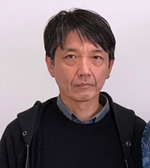Puppet Offering
| ||||||||||
|
| ||||||||||
"Puppet Offering"[Japanese title] is the theme for the first phase of Hyness's boss battle. It first appeared in Kirby Star Allies and was composed by Jun Ishikawa.[1]
Composition[edit]
"Puppet Offering" is one of five tracks generally associated with Hyness and the altar room of the Divine Terminus. It is composed in the style of gamelan, and the instrumentation consists of metallophones, a bowed string instrument, and a bassoon. It starts with fairly conventional gamelan instrumentation and musical scales, but gradually deviates away from a traditional gamelan sound with the introduction of a string instrument with heavy tremolo and a playful but discordant bassoon line, before looping back.
According to the Kirby Star Allies: The Original Soundtrack booklet, Jun Ishikawa was initially anxious about composing this track and its sister track, as Shinya Kumazaki had requested a "gamelan-like song", but gamelan is Indonesian religious music and has specific limitations to its musical scale. When he asked Kumazaki if the track was okay, Kumazaki responded, "If a real gamelan player hears this, and they think, 'Oh, was that supposed to be gamelan?', that's fine." Ishikawa was relieved after this, and continued composing without worrying about the limitations. Hirokazu Ando also joked that he was worried when he saw that Kumazaki requested a gamelan song, and was relieved that it didn't fall to him.
Ishikawa composed "Puppet Offering" to be slightly less serious than "La Follia d'amore", as it is only the first phase of the battle. However, he was concerned that using a bassoon sample for the bass part would make the song too silly for its context in the game. Kumazaki's response reassured him, as he himself thought the song was scary.[2]
Names in other languages[edit]
| Language | Name | Meaning |
|---|---|---|
| Japanese | 傀儡奉納[3] kugutsu hōnō |
Puppet Offering |
